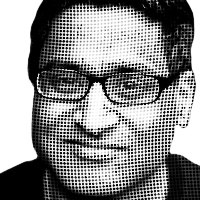In the middle of a column about how norms change, David Brooks remarks, “There used to be a social penalty for supporting gay marriage. Now there’s a social penalty for not supporting it.” I am not at all sure that there was a significant social penalty, in almost any stratum of our society, for supporting same-sex marriage.
It’s true, of course, that there were powerful and often oppressive social norms, sometimes backed by legal sanctions, against homosexuality. It’s also true that for a very long time, almost nobody supported same-sex marriage. This was not because of stultifying social pressure but because the idea never occurred to most people. (The liberal pundit Michael Kinsley notes that he had never heard of it until the late 1980s.) By 1996, Gallup was polling the question and found that 27 percent of the public supported it.
These folks were distinctly in the minority in most places, and surely aware of it. But did they face real social penalties? Has any CEO ever lost his job because he supported same-sex marriage? Did any baker face community hostility, let alone trouble from the government, because he made a cake for a same-sex commitment ceremony? When David Brooks became an early supporter of same-sex marriage among conservatives, did he lose a single dinner-party invitation?
It seems to me that there is an asymmetry between how social pressure worked back when same-sex marriage was a minority position and how it works now that it is a majority position. That asymmetry tends to reinforce some of Brooks’s larger points about how norms change. The traditionalist view was widely but, it turned out, often lightly held, and barely conscious of itself as a view. Marriage as the union of a man and a woman was just “the water in which we swam,” as Brooks describes the general functioning of norms. The progressive view is by contrast extremely conscious of its status as a view that can and should be socially enforced.
